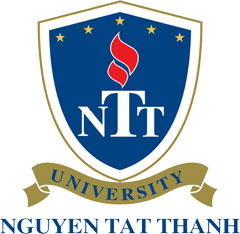IMPORTANT NOTE:
ICCASA 2017 and ICTCC 2017 proceedings has been published on SpringerLink and EUDL websites.:
https://link.springer.com/book/10.1007/978-3-319-77818-1
https://eudl.eu/proceedings/ICCASA%202017%20and%20ICTCC/2017
REGISTRATION FOR COLOCATED CONFERENCES ICCASA & ICTCC 2017 IS OPEN HERE
A Half-Day Tutorial : Software Stability Model (SSM) - The Art of Abstractions "How-To"
Activities of the conference will include a half-day tutorial on Software Stability Model (SSM) – The Art of Abstractions “How-To” presented by Prof. M.E. Fayad from San José State University, USA
Special Track
Keynote speech: Fuzzy Rules Generation from Data with Comprehensibility, Completeness and Correctness

Prof. Phayung Meesad at King Mongkut's University of Technology North Bangkok, Thailand will give a talk at ICCASA 2017 (co-located with ICTCC 2017) on an interesting topic of fuzzy logic with the title of "Fuzzy Rules Generation from Data with Comprehensibility, Completeness and Correctness"
Keynote speech: IoT & Smart Cities Emergences

Prof. Vijender Kumar Solanki at CMR Institute of Technology, Hyderabad, TS, India will give a talk at ICCASA 2017 (co-located with ICTCC 2017) on an interesting topic of IoT and Smart Cities with the title of "IoT & Smart Cities Emergences"
Keynote Speech: The Impacts of Software Stability on the Art of Abstraction

Prof. Mohamed Fayad at Computer Engineering at San Jose State University will give a talk at ICCASA 2017 (co-located with ICTCC 2017) on an interesting topic of The Impacts of Software Stability on the Art of Abstraction
Keynote speech: Big data Analytics: Recent Issues and Challenges

Prof. Akhilesh K. Sharma will give a talk at ICCASA 2017 (co-located with ICTCC 2017) on an interesting topic of Big data Analytics: Recent Issues and Challenges
6th EAI International Conference on Context-Aware Systems and Applications
One of hot topics in ICT is currently undergoing rapid advancements and emerging on the spot as one of the priority research areas, whose research activities are booming recently: context-aware systems (CAS), which is primarily inspired by the human autonomic nervous system. CAS is characterized by its self-* facets such as self-organization, self-configuration, self-healing, self-optimization, self-protection and so on whose contextawareness used to dynamically control computing and networking functions.
The overall goal of CAS is to realize nature-inspired autonomic systems, that can manage themselves without direct human interventions. Meeting this grand challenge of CAS requires a rigorous interdisciplinary approach to context-aware systems. To this end, ICCASA 2017 will bring together Vietnamese and international researchers and practitioners working or interested in the intersection of approaches for supporting context-aware systems.
TOPICS
Fundamentals of Context-aware systems
- Context-aware models
- Context-aware control
- Context-aware algorithms
- Context-aware networks
- Context-aware computing
- Context-awareness calculi
- Context-awareness representation
- Context-awareness-based systems
- Logic in context-awareness
- Context-awareness reasoning
- Formal methods of context-awareness
- Context-awareness-based optimization and swarm Intelligence
Context-aware Systems
- Routing, transport, and reliability issues of context-aware systems
- Data dissemination and replication in context-aware systems
- Applications and middleware support, mobile social networking applications
- Mobility models and statistical analysis of mobility traces
- Context and social awareness mechanisms and algorithms
- Co-existence of opportunistic networks with infrastructure mobile wireless networks
- Service composition in autonomic and opportunistic networks
- Cognition-driven information processing and decision making
- Performance modeling, scaling laws, and fundamental limits for autonomic and opportunistic communications
- Game-theoretic insights to the operation of autonomic and opportunistic networks
- Participatory and urban sensing in autonomic and opportunistic networks
- Trust, security, and reputation in context-aware systems
-Autonomic and opportunistic communication testbeds and prototypes, measurement data from real
experiments
- Socio-economic models for autonomic and opportunistic communications
Context-aware Technologies
-Context-aware information retrieval
- Context-aware profiling, clustering and collaborative filtering
- Machine learning for context-aware information retrieval and ontology learning
- Context-aware e-learning/tutoring
- Ubiquitous and context-aware computing
- Use of context-aware technologies in UI/HCI
- Context-aware advertising
- Recommendations for mobile users
- Context-awareness in portable devices
- Context-aware services
- Social Agents and Avatars
- Emotion and Personality
- Virtual Humans
- Autonomous Actors
- Awareness-based Animation
- Social and Conversational Agents
- Inter-Agent Communication
- Social Behavior
- Crowd Simulation
- Understanding Human Activity
- Memory and Long-term Interaction
HIGHLIGHTS
- The event is endorsed by the European Alliance for Innovation, a leading community-based organization devoted to the advancement of innovation in the field of ICT
- All accepted papers will be published by Springer and made available through SpringerLink Digital Library, one of the world's largest scientific libraries
- Proceedings are submitted for inclusion to the leading indexing services: Elsevier (EI), ISI Thomson´s Scientific and Technical Proceedings at Web of Science, Scopus, Crossref, Google Scholar, DBLP, as well as EAI´s own EU Digital Library (EUDL)
- Best papers will be invited to publish in the EAI Transactions on Context-aware Systems and Applications
PUBLICATION
Official conference proceedings of ICCASA 2017 will appear in the Lecture Notes of ICST (LNICST) series jointly published by ICST and Springer. All papers must be submitted electronically, in PDF format. There are two options for the submissions, either a full paper or a short paper. We decided to allow the submission of short papers in order to accommodate the most recent research outcomes.
The submissions should be formatted with single-spaced, single-column pages using on A4 or letter pages in Springer LNICST style format. The maximum number of pages is 10 for full papers. Authors should submit a 6-page single-column manuscript for short papers. The camera-ready version of an accepted full (short) paper cannot exceed 10 (6) pages.
Detailed formatting and submission instructions will be available here. All accepted papers will appear in Springer LNICST proceedings only if at least one of the authors attends to present the paper.
Selected Journal Publication:
All papers, but particularly those nominated for the Best Paper competition, will be automatically considered for publication in an expanded form in the special issues of Springer Mobile Networks and Applications (MONET) journal (SCIE-indexed), and EAI endorsed Transactions on Context-Aware Systems and Applications.
BECOME A REVIEWER:
Please send your CV to [email protected]
We usually select reviewers based on a few criteria as follows:
- Qualification of reviewer (PhD – depending on subject area)
- Whether they have reviewed before
- The number of papers they have published in their given area of expertise
- How well those papers have been cited
- Recommendations from other researchers/reviewers they know or have worked with
Once we approve your qualifications, you will be counted in the list of reviewers on this website. Review period will start up after the deadline of submission.

















































